Walking down Deansgate in Manchester, you could be forgiven for thinking that the magnificent Gothic building in rose-coloured stone is a medieval cathedral, but it’s actually a library, and even more surprisingly, it only dates back to the turn of the 20th century.
The John Rylands Library is part of the University of Manchester but it’s open for anyone to visit. Don’t miss seeing inside this gorgeous building – it’s one of the best places to see in Manchester.
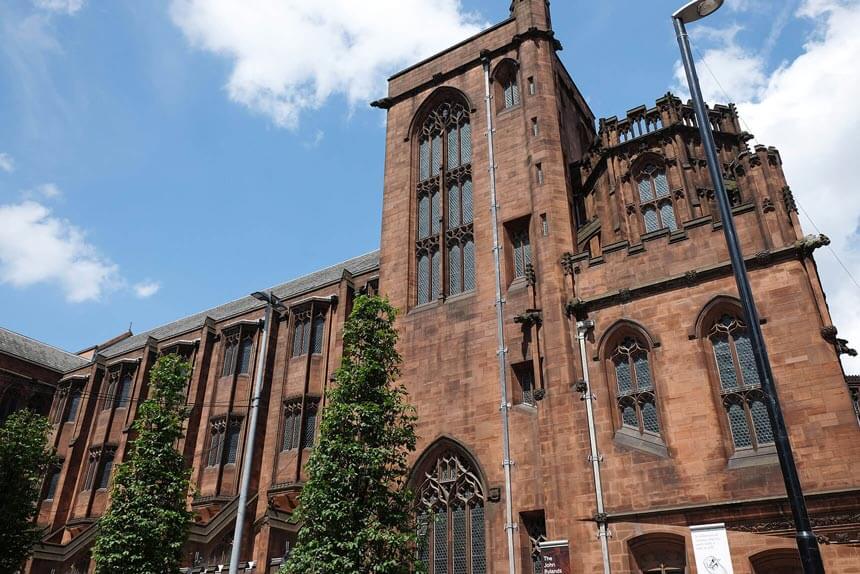
Who was John Rylands and why was the library built?
John Rylands was a weaver, businessman and philanthropist, and Manchester’s first multi-millionaire. At its peak, his company had 17 mills and factories, employing 15,000 workers. He married three times; his third wife was Enriqueta Augustina Rylands who had been a companion to Rylands’ second wife, Martha. When John Rylands died in 1888, Enriqueta inherited his fortune and became a major shareholder in the family textile firm and in the Manchester Ship Canal.
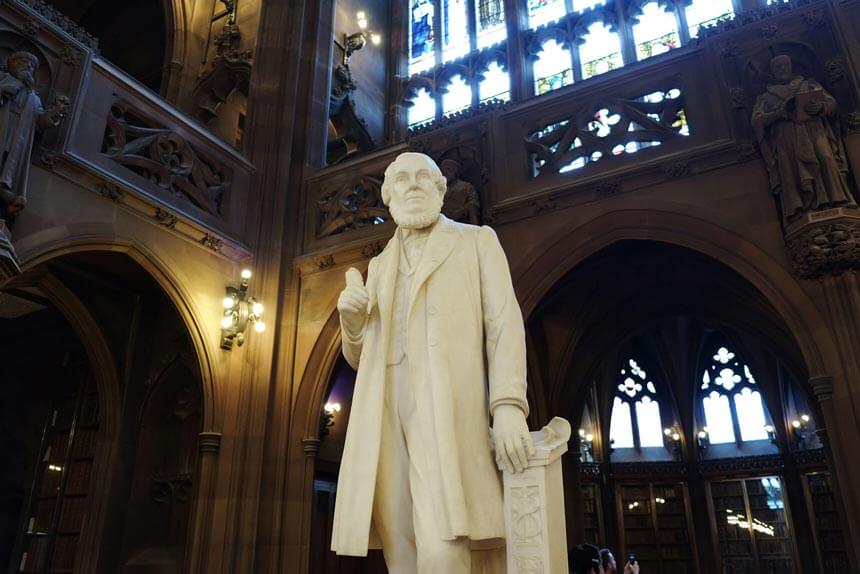
Soon after John Rylands’ death, Enriqueta started to put in motion her plans for a library in his honour. She had admired the work of architect Basil Champney, particularly his design for the library at Mansfield College, Oxford, and commissioned him to build a more lavish version on a cramped site in Manchester, surrounded by warehouses, derelict cottages and narrow streets. Champney needed to work cleverly with the site to maximise light for readers and to reduce the effect of the smoky, polluted city. Even the pink Penrith stone was chosen for its reputed resistance to pollution.
While Champney was busy designing and building the library, Enriqueta started providing something for visitors to read. In 1892 she secretly bought the contents of the 2nd Earl Spencer’s library for the record sum of £210,000.
The John Rylands Library opened on 6 October 1899, the anniversary of Enriqueta’s marriage to John. Enriqueta was given the freedom of the city of Manchester on the same day, the first woman to receive the honour.
What to see when you visit the library
The historic reading room
The reading room is the brightest and most beautiful room in the library. It feels a lot like a cathedral with its stained glass windows. Down the centre of the room you’ll see long tables and display cases, while cosy study nooks line the walls like chapels in a cathedral.
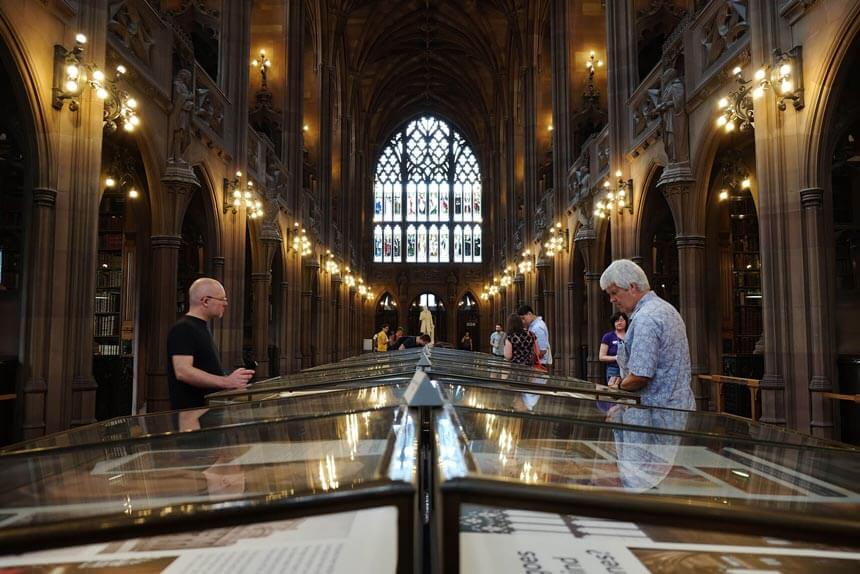
At one end of the reading room you can see a statue of Enriqueta Rylands; her statue gazes down the room to a statue of her husband John. The cathedral-like qualities are enhanced by how peaceful it is; the reading room is in the centre of the building, as separated as it can be from the noise and bustle of the street outside.
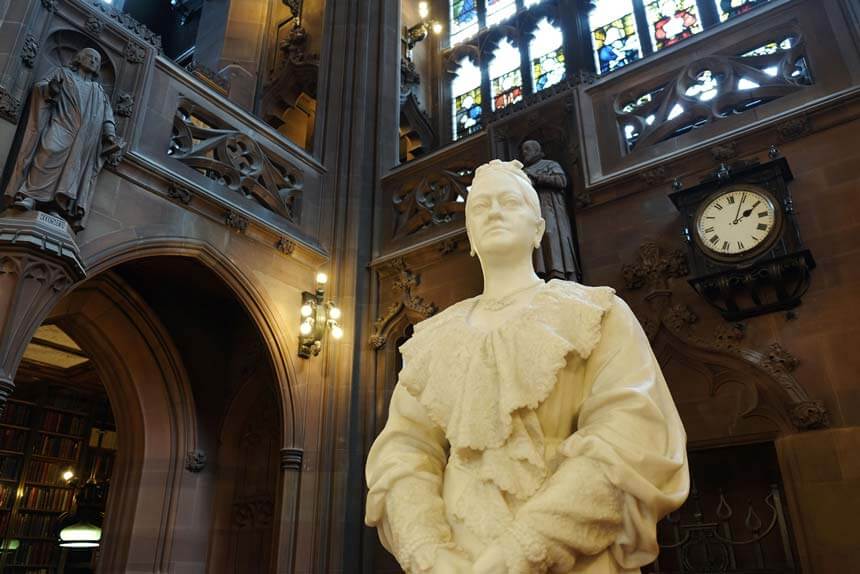
The original entrance hall and main staircase
If you visit the John Rylands Library today, you’ll enter through a modern extension that houses the cafe and shop, but when the library first opened, visitors would have entered through the large main doors which open onto Deansgate. It must have been an awe-inspiring first impression – the soaring vaulted ceiling, held up by so many elegant stone columns it looks like a forest, and the main staircase sweeping up to the reading room.
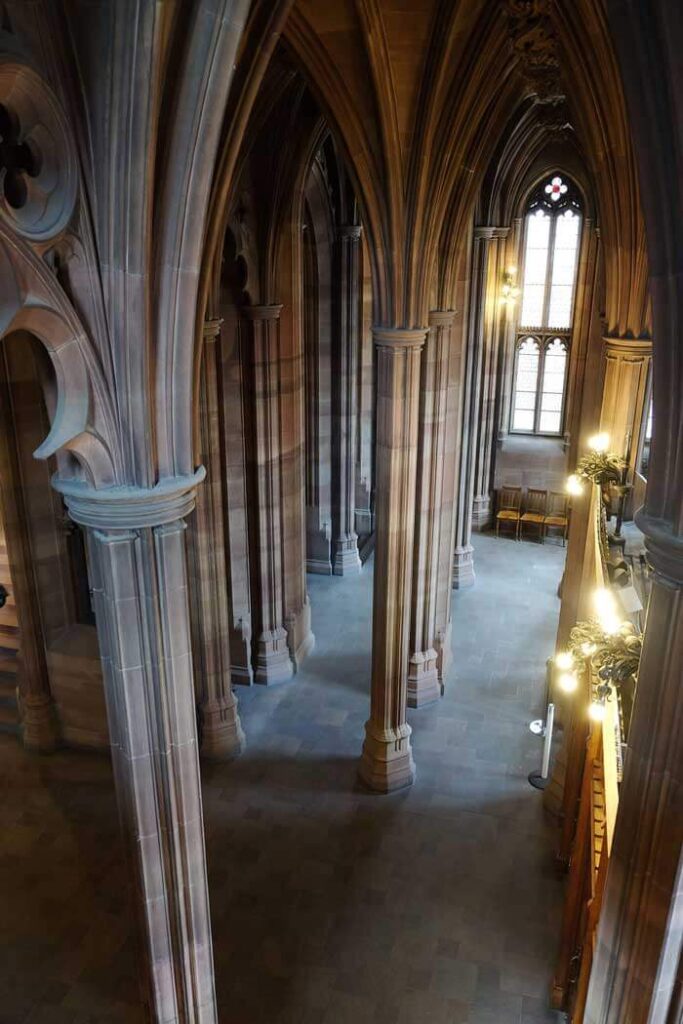
Special collections
The library’s collection includes a number of priceless manuscripts, including beautiful medieval illuminated manuscripts, a copy of the Gutenberg bible and personal papers belonging to some of Manchester’s most famous figures, including writer Elizabeth Gaskell. The library also holds papyrus fragments believed to be the oldest surviving New Testament text.
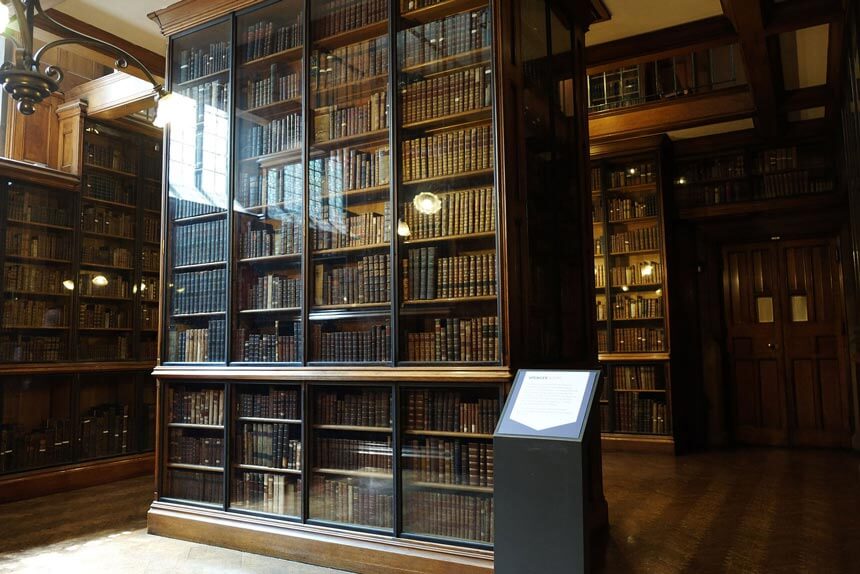
Temporary exhibitions
The library hosts a series of temporary exhibitions. The exhibition for this summer celebrates 200 years of the Guardian newspaper, which started off as the Manchester Guardian on 5 May 1821. The Manchester’s Guardian exhibition runs until 10 October 2021; previous temporary exhibitions have covered the history of a uniquely important manuscript that was loaned to the library, hidden treasures from the University of Manchester’s medical collection, women who shaped Manchester and the Reformation.
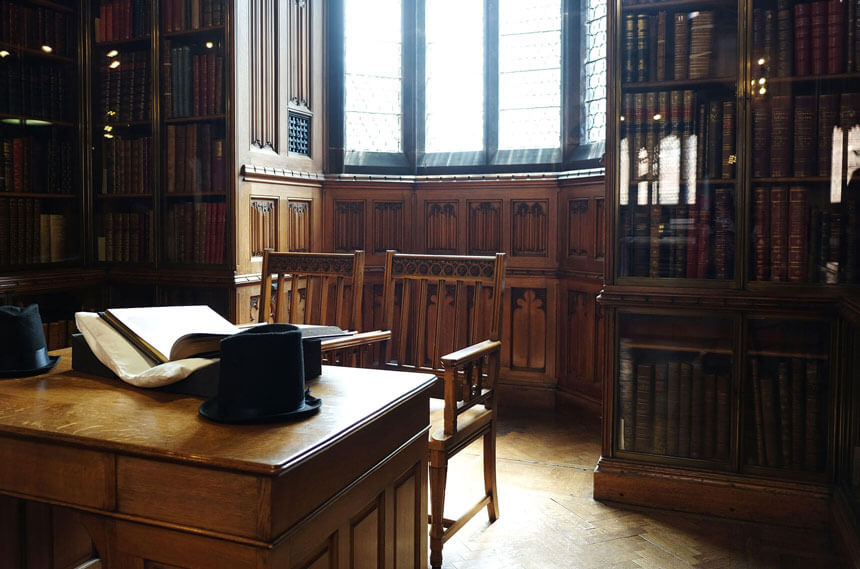
Where is the John Rylands Library?
The John Rylands Library is in central Manchester, on Deansgate. It’s next to the modern Spinningfields district, where you’ll find some of Manchester’s most popular restaurants. The library is just under a mile from Manchester’s main intercity railway station, Manchester Piccadilly, and around half a mile from both Manchester Victoria and Salford Central. The nearest Metrolink tram stop is St Peter’s Square.
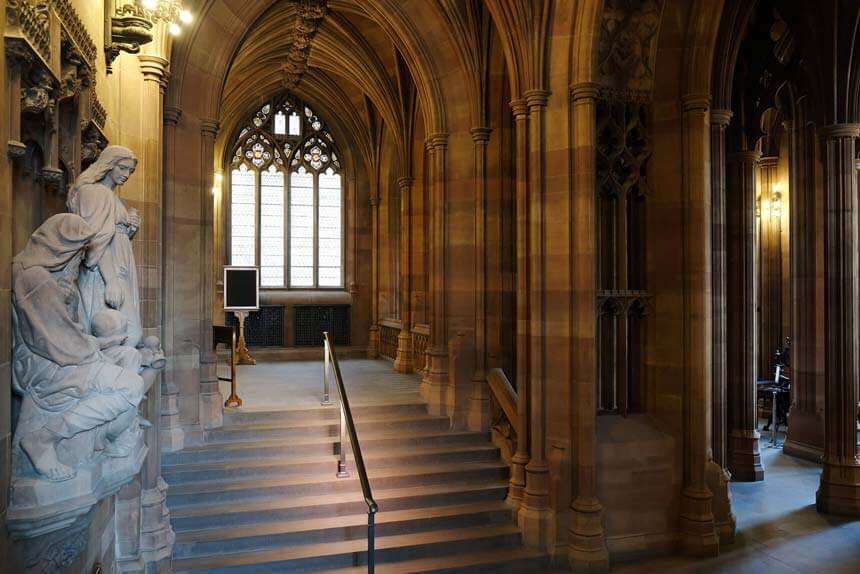
Visiting the John Rylands Library
The John Rylands Library is open Wednesday to Saturday, 10am to 5pm, with the last entry at 4.30pm. There is some building work taking place until Spring 2025 as part of the Next Chapter project, and during this time tour guides won’t be able to take groups inside. You may be able to have a tour with one of the John Rylands Library team – ask when you arrive if there are any tours available.
More fantastic libraries to visit in Manchester
Central Library
Manchester Central Library is a beautiful circular building on St Peter’s Square. The striking 1930s architecture blends classical with Art Deco and Arts & Crafts details. There’s a large, bright reading room plus a cafe, shop and event space.
Chetham’s Library
Chetham’s Library was founded in 1653 and is the oldest public library in Britain. The 600-year old buildings near Victoria Station have been in continuous use as a library for over 350 years; the closure during lockdown is the longest that its doors have been closed in all that time.
It’s now open again for guided tours, which take place on weekdays and Saturdays. Booking is essential on the Chetham’s Library website.
Portico Library
I’d lived in Manchester for a long time before I even knew the Portico Library was there, and I only visited for the first time a few weeks ago. The Portico Library is an independent subscription library, hidden away through an unassuming door on the corner of Charlotte Street and Mosley Street.
Ring the buzzer, say you’d like to come up and have a look then climb the stairs up to the top floor with its lovely dome and walls of rare books. The staff here are very welcoming and will be delighted to tell you about the library. There are regular exhibitions.

It is not easy to take good shots in the library, yours are very good.
Thank you Dennis!